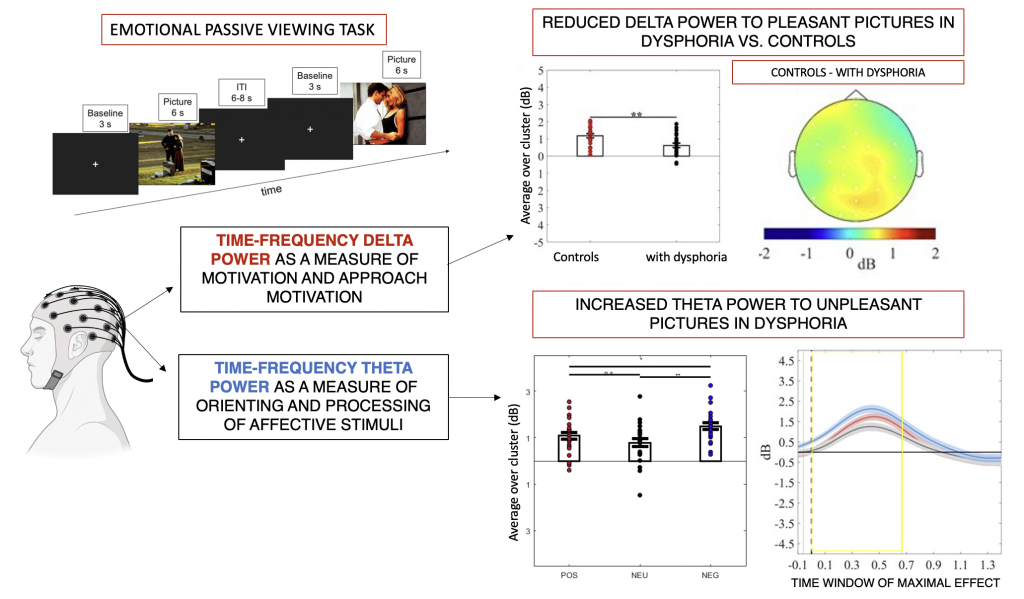

Reduced approach motivation, indexed by reduced emotional responding to pleasant stimuli, and increased cognitive elaboration of unpleasant stimuli, are increasingly considered putative risk factors for depression. A novel approach to simultaneously examine these two processes is to examine time-frequency delta and theta power while participants are exposed to emotional pictures. Indeed, delta power appears to have a functional role in monitoring the motivational relevance of affective cues and in the identification of pleasant/rewarding stimuli and is generated by subcortical regions involved in the motivational system. Whereas theta power reflects the processing of salient events and can be employed to assess cognitive processing during the viewing of affective content.


The present study analyzed delta and theta power to simultaneously examine approach motivation and cognitive processing during the viewing of emotional pictures (pleasant, neutral, unpleasant) in dysphoria. Cluster-based statistics revealed a centro-parietal reduction in delta power for pleasant stimuli in individuals with dysphoria relative to controls. Also, dysphoria was characterized by an early fronto-central increase in theta power for unpleasant stimuli relative to neutral and pleasant ones.
The present study granted novel insights into the interrelated facets of affective processing in dysphoria, mainly characterized by a hypoactivation of the approach-related motivational system and a sustained facilitated cognitive processing of unpleasant stimuli. Considering that dysphoria is a condition known to considerably increase the risk of depression, these patterns of affective processing may represent quantitative measures allowing for early identification and treatment of depressed mood.

Dell’Acqua C, Dal Bò E, Moretta T, Palomba D, Messerotti Benvenuti S. EEG time-frequency analysis reveals blunted tendency to approach and increased processing of unpleasant stimuli in dysphoria. Sci Rep. 2022 May 17;12(1):8161. doi: 10.1038/s41598-022-12263-9. PMID: 35581359; PMCID: PMC9113991.


